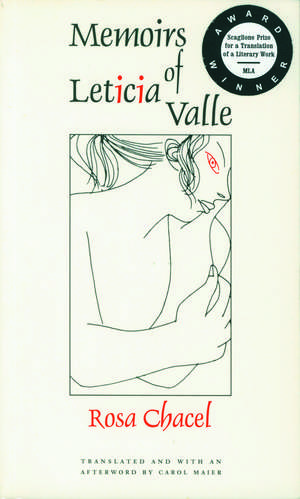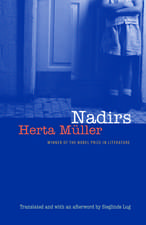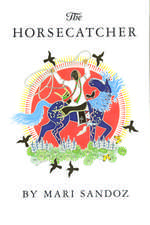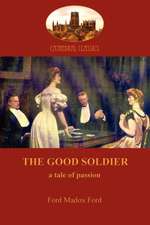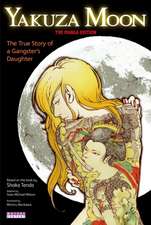Memoirs of Leticia Valle
Autor Rosa Chacel Traducere de Carol Maieren Limba Engleză Paperback – 30 noi 1993
Memorias de Leticia Valle (1945) is the fictionalized diary of an eleven-year-old girl who records an "inconceivable" seduction. Set in early twentieth-century Spain, the events she chronicles take place in the village of Simancas, site of a castle that houses a famous archive. Leticia, the archivist, and his wife—Leticia's piano teacher—are the actors in this drama, which is rehearsed in a purely introspective way. The seduction resembles that of a thirteen-year-old girl in Dostoyevsky's The Possessed, but it does not result in Leticia's mental or physical destruction. Rather, it acts as the catalyst for a deep questioning and exploration of life.
Preț: 112.35 lei
Nou
Puncte Express: 169
Preț estimativ în valută:
21.50€ • 23.37$ • 18.08£
21.50€ • 23.37$ • 18.08£
Carte disponibilă
Livrare economică 31 martie-14 aprilie
Preluare comenzi: 021 569.72.76
Specificații
ISBN-13: 9780803263604
ISBN-10: 0803263600
Pagini: 201
Ilustrații: Afterword
Dimensiuni: 140 x 229 x 13 mm
Greutate: 0.31 kg
Editura: Nebraska Paperback
Colecția University of Nebraska Press
Locul publicării:United States
ISBN-10: 0803263600
Pagini: 201
Ilustrații: Afterword
Dimensiuni: 140 x 229 x 13 mm
Greutate: 0.31 kg
Editura: Nebraska Paperback
Colecția University of Nebraska Press
Locul publicării:United States
Notă biografică
Rosa Chacel was born in Vallodolid, Spain, in 1898. She belongs to that brilliant generation of artists that became the cultural vanguard in the 1920s and 1930s: García Lorca, Buñuel, Dalí, Alberti, Guillén, Aleixandre. As a result of the fascists' victory in the late thirties, the work of Chacel and other women writers were erased from the cultural memory until recently. In the interim Chacel was exiled in Brazil and Argentina. Currently she lives in Madrid and writes every day.
Carol Maier is a professor of Spanish at Kent State University and editor, with Noël Valis, of In the Feminine Mode. Her other translations include work by Carmen Martín Gaite, Ana Castillo, Octavio Armand, and Severo Sarduy.
Recenzii
“Leticia’s haunting story is not so much that of another Lolita, at last given voice, as it is a portrait of the artist as a young girl. What Leticia seeks to record are the contours of her own ‘inconceivable’ self, those elements in her personality that make her an artist. Indeed, Leticia engages our sympathies precisely because she refuses the role of victim, instead striving to acknowledge the degree of her complicity. . . . According to the informative afterword provided by the adept and sensitive translator, Carol Maier, this is the first novel Ms. Chacel calls her ‘own,’ the previous two having been written under the influence of José Ortega y Gasset, whose role in her life seems to have strained the normal bounds of editor and mentor. ”—Kathryn Davis, New York Times Book Review
“Rich and rewarding in its sensitively nuanced evocation of awakening sexuality and passion. A notable debut.”—Kirkus Reviews.
“A clear and sensitive translation. . . . Maier’s afterword helps illuminate the plot and provides a historical and literary context in which to interpret the text, making important connections to Dostoyevski and Freud.”—Publishers Weekly
